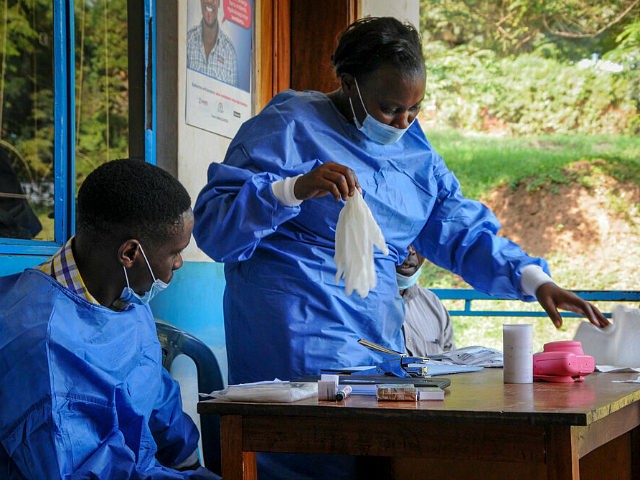Ugandan authorities this week repatriated the relatives of the two people known to have succumbed to the Ebola virus within its borders back to the Democratic Republic of Congo (DRC), Africa News reported this weekend.
The move came after health officials in Uganda confirmed the presence of the deadly Ebola disease within its borders this week, which they linked to individuals from neighboring DRC.
Citing the Ugandan health ministry, Reuters noted on Thursday:
Authorities repatriated the relatives of two people who died of Ebola in Uganda back to the Democratic Republic of Congo on Thursday, including a 3-year-old boy confirmed to be suffering from the disease.”
“While the repatriation means there’s no confirmed case of Ebola in Uganda as of Thursday, three other suspected Ebola cases not related to the family remain in isolation,” Africa News added on Saturday.
Once in the DRC, the victims are reportedly expected to receive treatment.
“Hand washing facilities have been put in place, with washing materials like JIK (bleach) and soap. There’s no shaking of hands; people just wave at each other,” local journalist Ronald Kule told Reuters.
“Uganda remains in Ebola response mode to follow up the 27 contacts (of the family),” the Ugandan health ministry revealed in a statement, according to Reuters.
Red Cross personnel have reportedly embarked on an Ebola awareness drive in the Uganda-DRC border area following confirmed cases of the disease.
A five-year-old child in Uganda died as a result of the virus on Wednesday, marking the first cross-border lethal case of the disease since the outbreak began in the DRC in August 2018.
The government of Uganda reported that, as of June 12, there were at least three Ebola cases and two deaths, including the child. However, the Associated Press (AP) learned from medics in the field that at least three people have died.
Despite Uganda’s decision to deport potentially infected people back to the DRC, AP reported on Saturday that the country is still dealing with Ebola cases within its borders. Ugandan medics complain they lack the supplies to deal with the deadly virus.
AP revealed:
The isolation ward for Ebola patients is a tent erected in the garden of the local hospital. Gloves are given out sparingly to health workers. And when the second person in this Uganda border town died after the virus outbreak spread from neighboring Congo, the hospital for several hours couldn’t find a vehicle to take away the body.
“We don’t really have an isolation ward,” Pedson Buthalha, the region’s hospital administrator told AP. “It’s just a tent. To be honest, we can’t accommodate more than five people.”
In Uganda, medical workers lament what they described as “limited support in the days since infected members of a Congolese-Ugandan family showed up, one vomiting blood. Three have since died,” AP found.
The health workers wonder where the millions of dollars spent on preparing for an Ebola outbreak have gone if a front line hospital lacks basic supplies.
“Even the gloves are not enough,” the hospital administrator declared. “I give them out small.” A nurse nodded in agreement.
On Saturday, Africa News noted that authorities in Uganda banned public gatherings in areas near the neighboring DRC, home to a lethal outbreak of the virus.
The World Health Organization (WHO) reported 2,108 cases (2,014 confirmed; 94 probable) and 1,411 deaths (1,317 confirmed; 94 probable) in the DRC as of the same time.
Despite the lethal virus crossing over from the DRC into Uganda, the WHO on Friday said it is not yet an international emergency.
“Such a declaration typically triggers more funding, resources, and political attention. WHO said $54 million is needed to stop the outbreak,” AP pointed out.
“For the committee to make the emergency call, it must determine that the epidemic ‘carries implications for public health beyond the affected State’s national border and may require immediate international action,” Africa News noted.

COMMENTS
Please let us know if you're having issues with commenting.